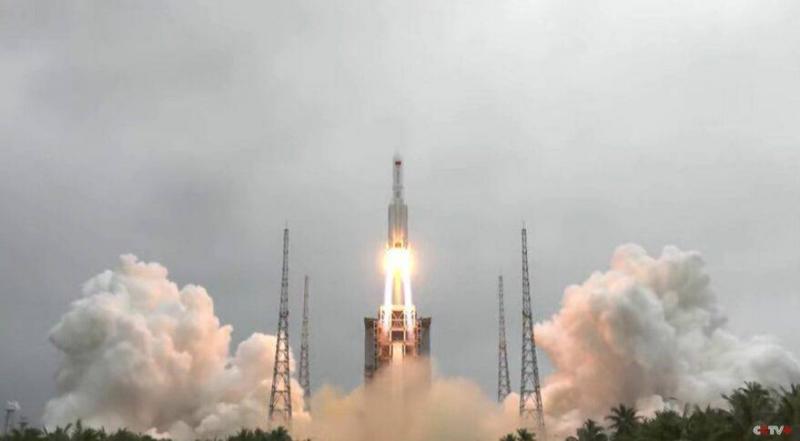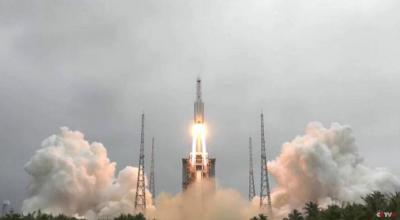Under the title "Including an Arab Country: A Possible Map of Areas for the Falling Untamed Rocket," Sky News reported that over the past few hours, global space agencies disclosed some areas that the Chinese rocket or its debris might fall into after days of being out of control, including an Arab country. The American aerospace organization "Aerospace Corporation" predicted that debris from the Chinese space rocket could fall over Sudan, having previously identified the coasts of Australia as potential fall areas. A report by the American newspaper "New York Times" cited the non-profit organization funded by the U.S. government claiming that the rocket might enter Earth's atmosphere on Saturday. The report added: "If this is true, debris from the rocket may fall over Sudan."
Additionally, Dmitry Rogozin, the head of the Russian space agency (Roscosmos), tweeted on Thursday, sharing a map of Earth showing potential impact areas for the rocket. According to Rogozin's tweet, the possible areas include vast expanses from most continents, including entire continents like Africa, South America, and Australia. The Russian news agency "Sputnik" commented on the tweet, noting that some areas are currently excluded, such as northern United States, Canada, most of Europe, Russia, and much of Central Asia. The Russian space agency announced on Thursday that it is closely monitoring the uncontrolled movements of the rocket in an attempt to predict where it might fall.
In this context, estimates from the European Space Agency earlier indicated that the rocket would fall between May 8 and 10. A report by the British newspaper "Guardian" quoted the agency stating, "The trajectory of the rocket means that any remaining parts will land between 41 degrees North and 41 degrees South, a strip of land extending from the southern regions of Spain, Portugal, and Italy to Australia."
On Tuesday, the U.S. Department of Defense (Pentagon) stated in a report that the exact landing location of the rocket could only be determined a few hours after it re-enters Earth's atmosphere. U.S. Defense Secretary Lloyd Austin, during a press conference on Thursday, responded to a question about the expected time of the rocket's fall: "According to the latest estimates I have seen, it is expected to occur on May 8 or 9."
China recently launched the first components of its space station (CSS) with the "Long March 5B" rocket, and the body of this rocket will land within days, possibly hours, at an unspecified location. After the space station unit separated, the rocket began orbiting Earth in an irregular path while gradually descending, making it nearly impossible to predict the entry point into the atmosphere and thus its landing point. The rocket might disintegrate upon entering the atmosphere, leaving behind debris, but if it remains intact, there is a high likelihood it will land in a sea, given that water covers 70% of Earth’s surface. However, this is not certain, as it could crash in a populated area or on a ship, according to space scientists. This is not the first time China has lost control of a spacecraft upon its return to Earth; in April 2018, the space laboratory "Tiangong 1" disintegrated upon re-entering the atmosphere after two years of being non-operational. At that time, Chinese authorities denied that they had lost control of the laboratory.




